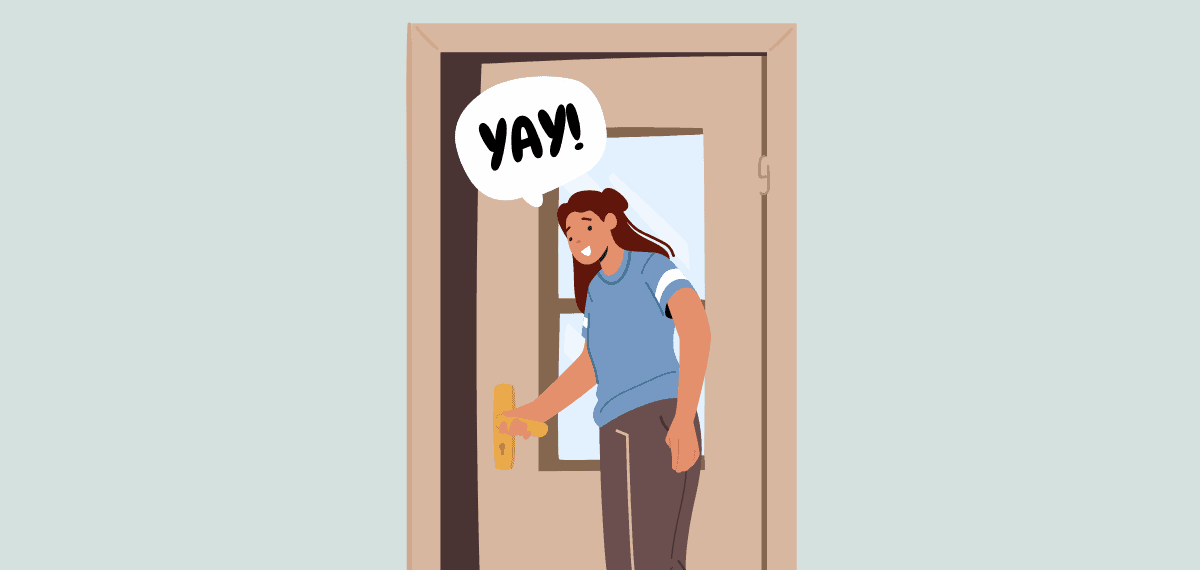In the tapestry of human language, certain expressions resonate with profound emotions, and one such phrase is "good riddance." This idiomatic expression encapsulates a mixture of relief and satisfaction, often used to signify the departure of something or someone undesirable. Whether it's a tumultuous relationship, a stressful job, or a bothersome habit, the phrase suggests that the speaker feels a sense of liberation from whatever burden has been lifted. Understanding the good riddance meaning can unlock deeper layers of social interactions and emotional responses.
At its core, the term "good riddance" conveys a sense of closure and relief. It implies that the speaker is glad to see the end of a negative situation or relationship and is ready to move forward. It’s often used in contexts where one might feel trapped or burdened, and the phrase serves as a verbal exclamation point to signify a fresh start. This expression is not merely a dismissal; it carries an emotional weight that reflects the complexities of human experiences and relationships.
As we delve into the good riddance meaning, it's essential to consider the various scenarios in which this phrase is commonly employed. Whether in casual conversations, literary works, or social media exchanges, the expression has become embedded in contemporary vernacular. In this article, we will explore the origins of the phrase, its applications in different contexts, and the emotional nuances it encapsulates.
What is the Origin of the Phrase "Good Riddance"?
The phrase "good riddance" has its roots in the late 16th century, derived from the term "riddance," which means the act of getting rid of something. The full expression emphasizes a sense of relief upon discarding an unwanted element from one's life. Over the centuries, it has evolved to symbolize both personal and societal sentiments. The historical context of its usage can be traced back to literature, where it often appeared in plays and poems to convey themes of liberation.
How is "Good Riddance" Used in Everyday Language?
In everyday conversations, "good riddance" is commonly used to express relief and satisfaction when someone or something undesirable is gone. Here are some typical scenarios where the expression might be used:
- After ending a toxic friendship.
- When leaving a stressful job.
- Upon overcoming a bad habit.
- When an annoying neighbor moves away.
What Emotional Tone Does "Good Riddance" Convey?
The emotional tone of "good riddance" can vary based on context. Often, it conveys a sense of happiness and relief, but it can also carry an undertone of bitterness or resentment. When someone expresses "good riddance," they may be celebrating their newfound freedom or expressing a desire to move on from a negative experience. The phrase can be cathartic, allowing individuals to articulate their feelings of liberation in a concise manner.
Can "Good Riddance" Be Used in a Positive Context?
While "good riddance" is typically associated with negative situations, it can also be employed in a positive context. For example, someone might say, "Good riddance to those outdated policies!" in a discussion about necessary changes in a workplace or community. In this sense, the phrase underscores the importance of progress and improvement while celebrating the removal of obstacles.
Are There Alternatives to "Good Riddance"?
While "good riddance" is a powerful expression, there are several alternatives that can convey similar sentiments. Here are a few:
- "Finally free!"
- "What a relief!"
- "Out with the old!"
- "Thank goodness that's over!"
How Does "Good Riddance" Reflect Cultural Attitudes?
The use of "good riddance" reflects cultural attitudes towards change and adversity. In many cultures, expressing relief over negative experiences is seen as a healthy and necessary part of emotional growth. This phrase can serve as a reminder that letting go of the past is crucial for personal development and moving forward in life.
In What Situations is "Good Riddance" Considered Inappropriate?
While "good riddance" can be liberating, there are situations where its use may be inappropriate. For example:
- In professional settings, particularly related to colleagues or clients.
- When discussing sensitive topics such as loss or grief.
- In diplomatic or formal communications where tact is essential.
Good Riddance Meaning in Popular Culture
The phrase "good riddance" has permeated popular culture, appearing in songs, films, and literature. One notable example is the song "Good Riddance (Time of Your Life)" by Green Day, which reflects on the bittersweet nature of endings and transitions. This cultural resonance demonstrates how the phrase encapsulates universal themes of change, nostalgia, and the complexities of human experiences.
Conclusion: Embracing the Good Riddance Meaning
In summary, understanding the good riddance meaning offers valuable insights into human emotions and social interactions. This expression serves as a reminder that, while change can be challenging, it often leads to personal growth and liberation. By embracing the meaning behind "good riddance," individuals can navigate their experiences with a sense of empowerment and clarity, transforming endings into new beginnings.
You Might Also Like
Exploring The Expansive GTA 6 Map: What Can We Expect?Exploring The Depths Of Daddy Issues Lyrics
Unveiling The XL Bully Dog: A Gentle Giant With An Unmatched Spirit
Understanding Delta Pet Fee: What Pet Owners Need To Know
Understanding The Conversion: 300g To Oz
Article Recommendations
- Natasha Nice Weight Loss
- Deer Meme Funny
- Jennifer Butler
- Jimmy Fallon Old Man
- Mls Playoff Format
- Karrueche
- Simon Guobadia Net Worth
- Jason Momoa Amber Heard
- Ryan Paevey Wife
- Jd Vance Height

